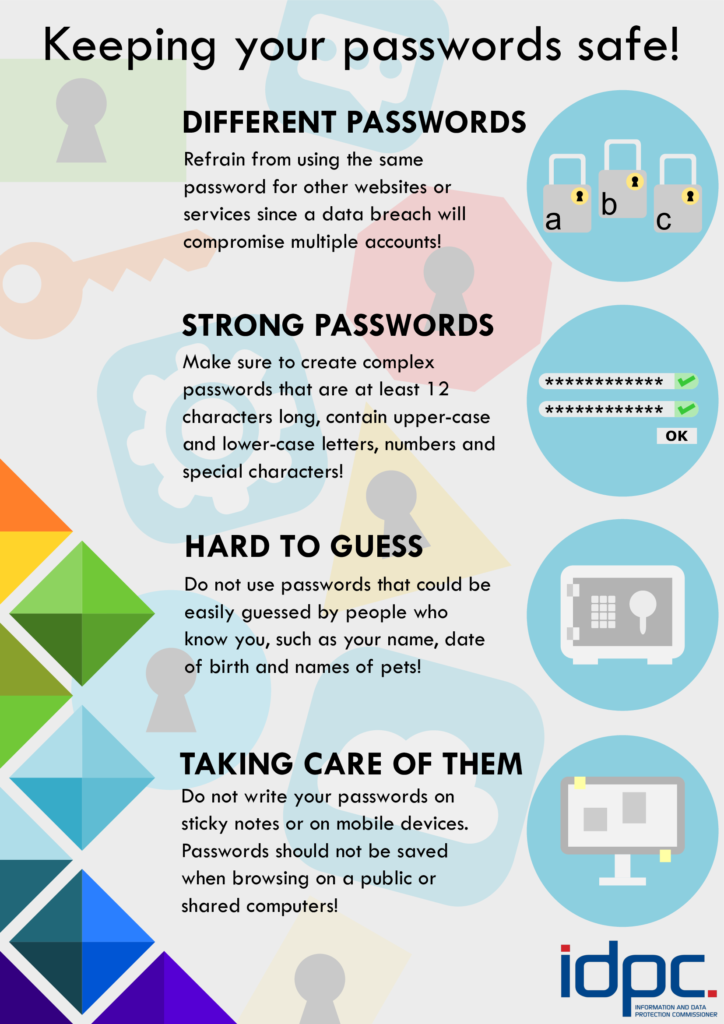Security
Security
Taking care of what you do with your personal data securing is something which you should be aware of. There are measures that you can adopt in order to ensure that the personal data are not exposed and therefore kept secure.
Even though controllers and processors are legally obliged to adopt technical or organisational measures to protect individual’s data from any kind of unauthorised or unlawful processing, data subjects have been empowered by the GDPR to control who collects their personal data and under which purposes.
In this sense, there are four main questions that data subjects should make in order to actively protect their data:
WHY? – To ask the controller questions before deciding to share your personal information;
WHO? – To know with whom you share your personal information;
WHEN? – To ensure that your personal data are stored securely and when such data will be deleted;
HOW? – To confirm that appropriate security measures are in place, either at home or at your workplace.
Online and Offiline Security
Furthermore, you should note that, for keeping your personal information secure, you must address offline and online security. Offline security relates to protect physical documents from third parties, such as flatmates, work colleagues, or any other person who might come into your home or office.
With regards to online security, bear in mind that cybersecurity is no longer a technological option, but a societal need. The threats are becoming more complex, demonstrating attackers’ enhanced planning capabilities, and are using social engineering techniques to commit frauds. In addition to that, especially following the COVID-19 outbreak, the attacks are facilitated since many individuals are working from home without the proper safeguards.
Passwords
A critical point is the use of passwords. Some individuals use the same password for different accounts, or even worse, use certain personal information to compose the password. However, you should note that the estimating password cracking time by a brute force attack to get into an account is no more than a few minutes, especially when the password is not strong or complex or otherwise uses personal data.
Therefore, by protecting your personal information you can reduce the risk of certain issues such as scam and identity theft, as well as implementing simple data protection measures in your routine could change your life.
You may find the following general guidelines on how to keep your password safe.

